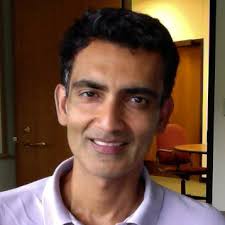
- This event has passed.
MEAM Seminar: “Data-driven Physics Discovery and Scale Bridging in Materials”
October 27, 2020 at 10:30 AM - 12:00 PM
In this talk I will provide an overview of our recent work in data-driven methods—mainly machine learning—to enhance computational materials physics models. This body of work has proceeded along two main fronts. The first is system inference, where we seek to identify physical mechanisms via their mathematical signatures as differential or algebraic operators. Our approach of Variational System Identification leverages the weak form of partial differential equations to identify the physics underlying pattern formation, and the deformation mechanisms of soft materials. The framework of Variational System Identification has to address several challenges specific to experimental characterization of materials, such as data that is noisy, sparse, originates from different specimens, and spans dynamics to steady state regimes. The second front is in scale bridging, which we approach in the context of determining free energy functions. We have developed Integrable Deep Neural Networks, and active learning algorithms to combine data generated by Density Functional Theory calculations with cluster expansions and Monte Carlo computations to obtain free energy density functions. These are used in mechano-chemically coupled continuum methods to predict the evolution of microstructure in alloys.

Krishna Garikipati
Professor, Department of Mechanical Engineering, University of Michigan at Ann Arbor
Krishna Garikipati obtained his PhD at Stanford University in 1996, and after a few years of post-doctoral work, he joined the University of Michigan in 2000, where is now a Professor in the Departments of Mechanical Engineering and Mathematics. Since 2016 he also has served as the Director of the Michigan Institute for Computational Discovery & Engineering (MICDE). His research is in computational science, with applications drawn from materials physics, biophysics, mechanics and mathematical biology. Of recent interest are data-driven approaches to computational science. He has been awarded the DOE Early Career Award for Scientists and Engineers, the Presidential Early Career Award for Scientists and Engineers (PECASE), and a Humboldt Research Fellowship. He is a fellow of the US Association for Computational Mechanics, a Life Member of Clare Hall at University of Cambridge, and a visiting scholar at the Flatiron Institute of the Simons Foundation.
